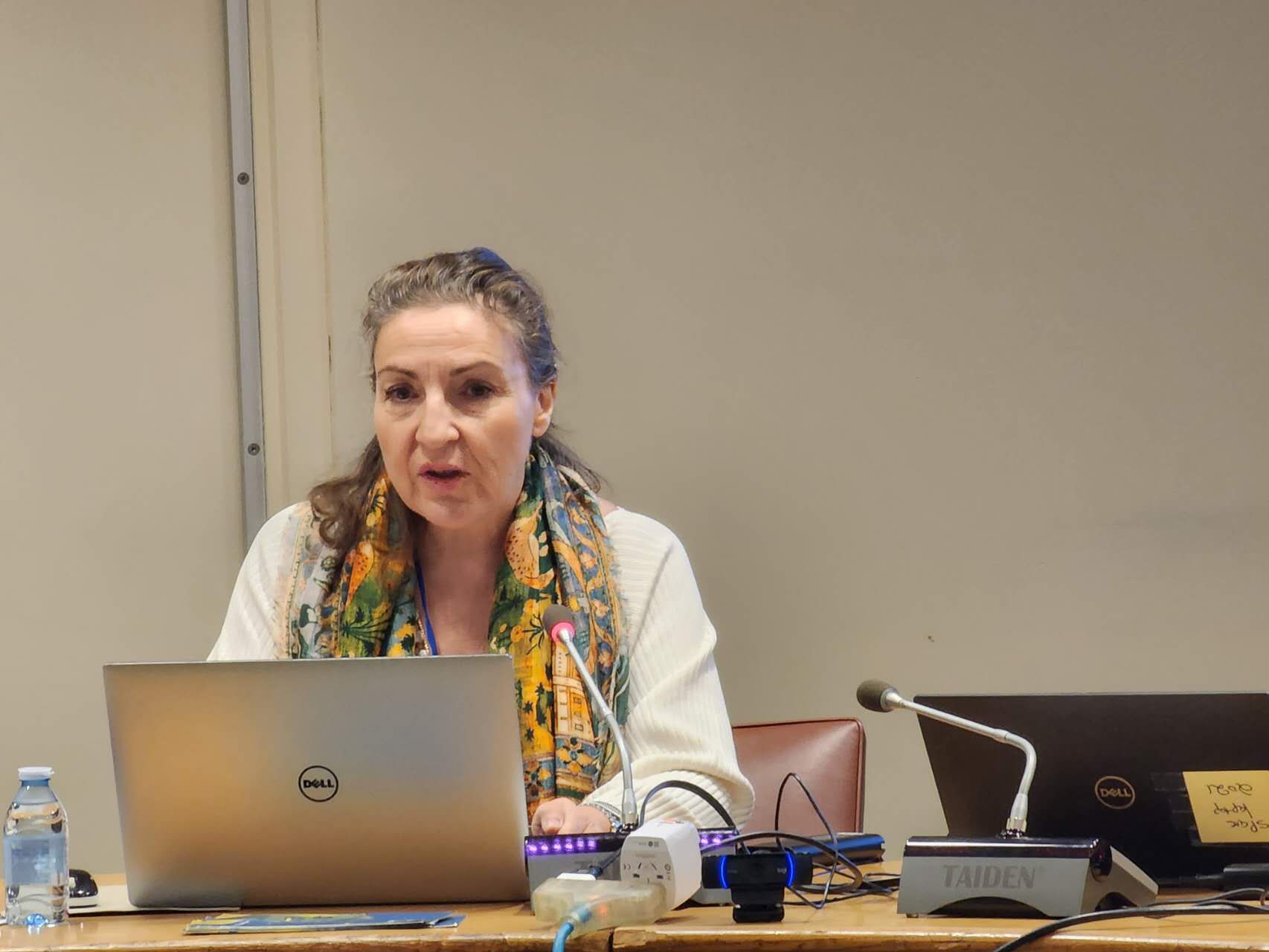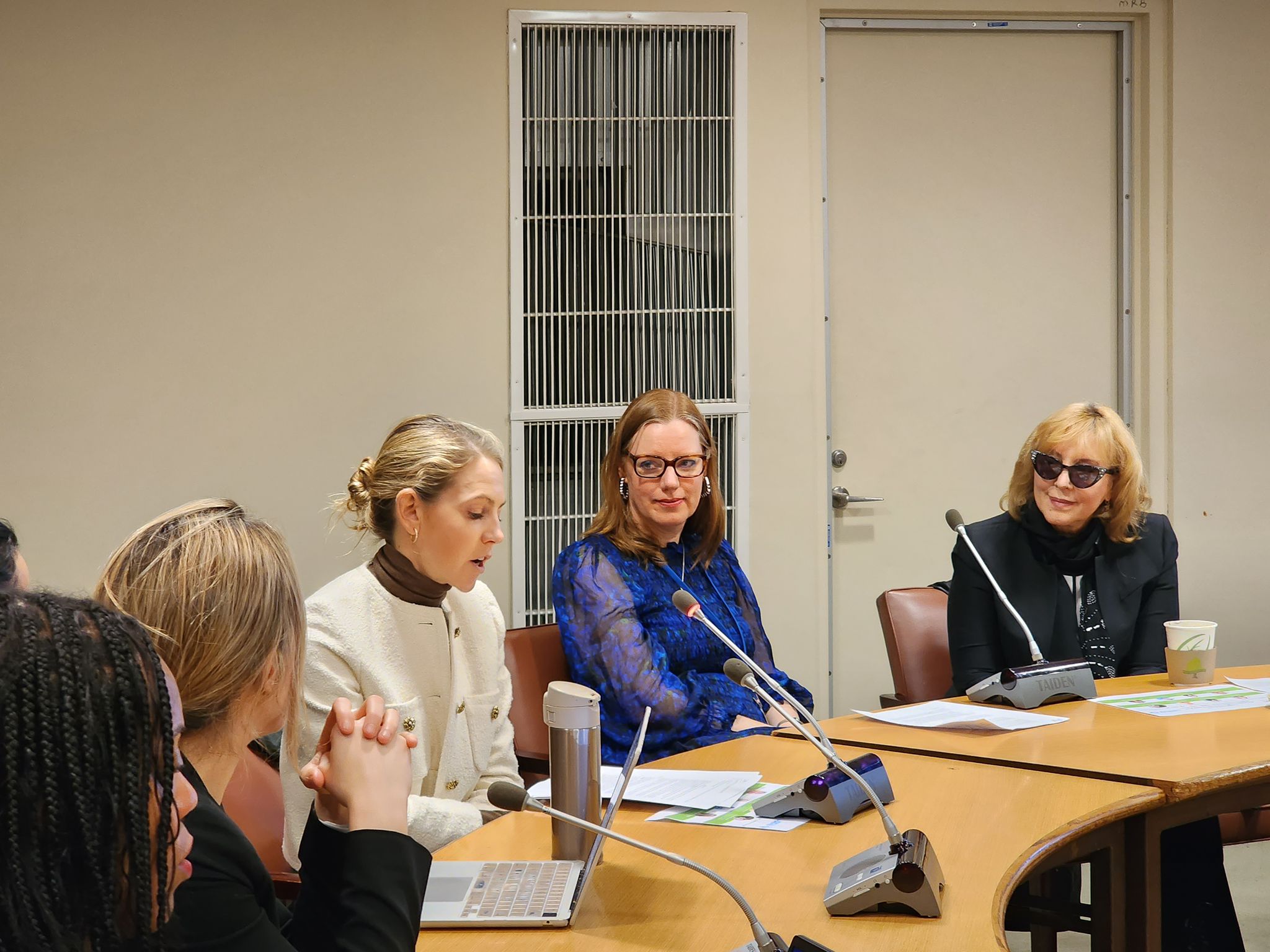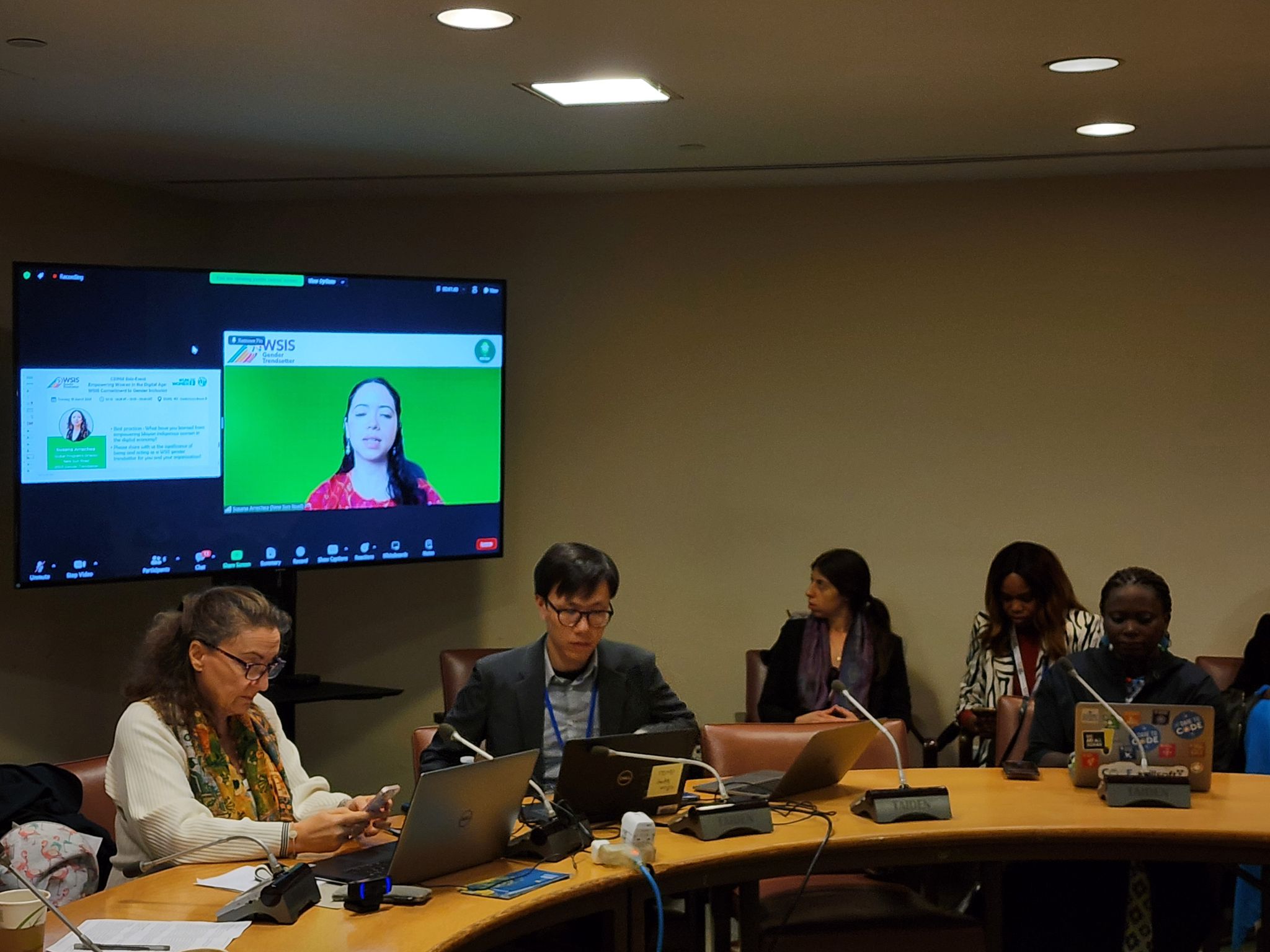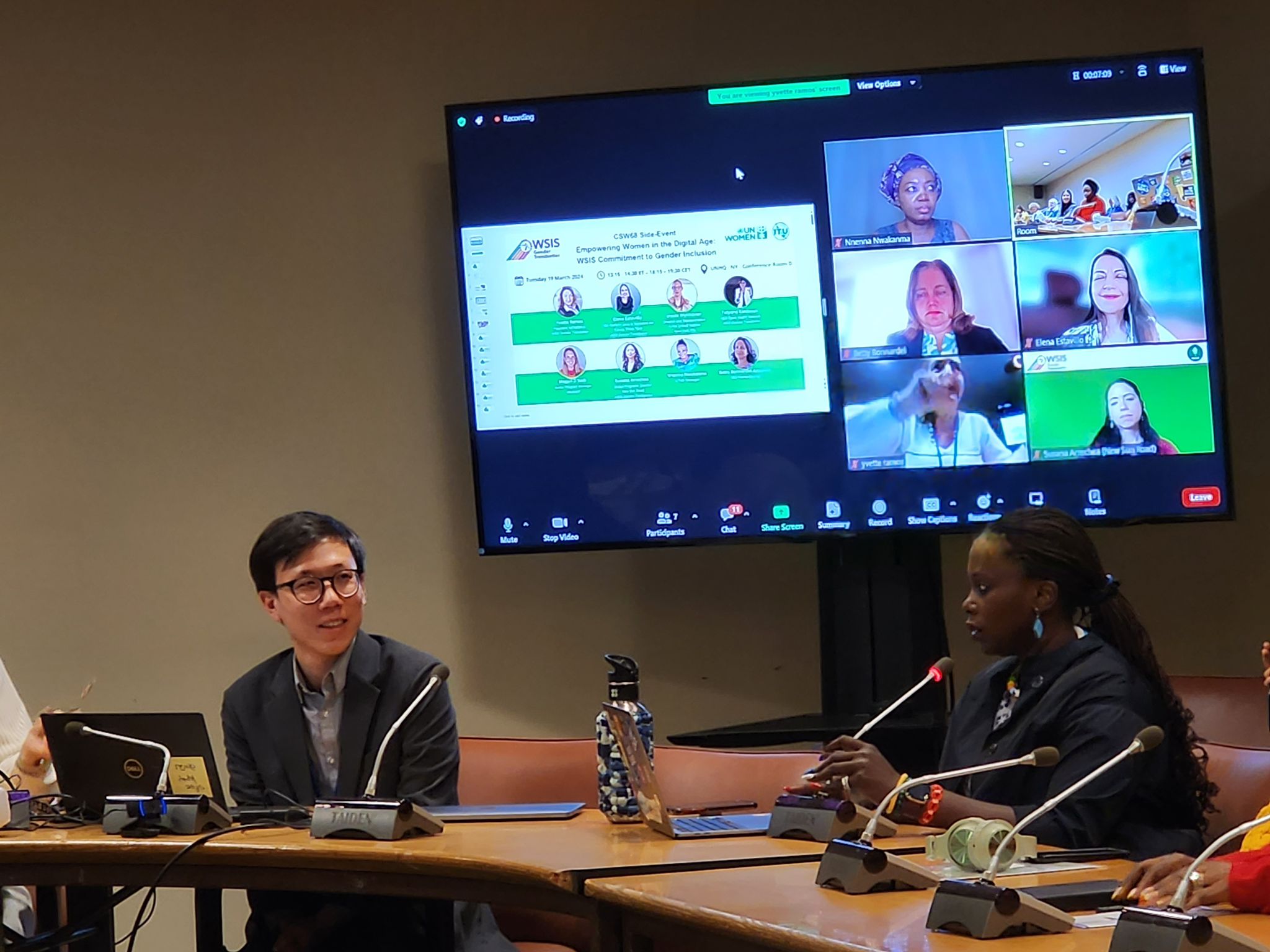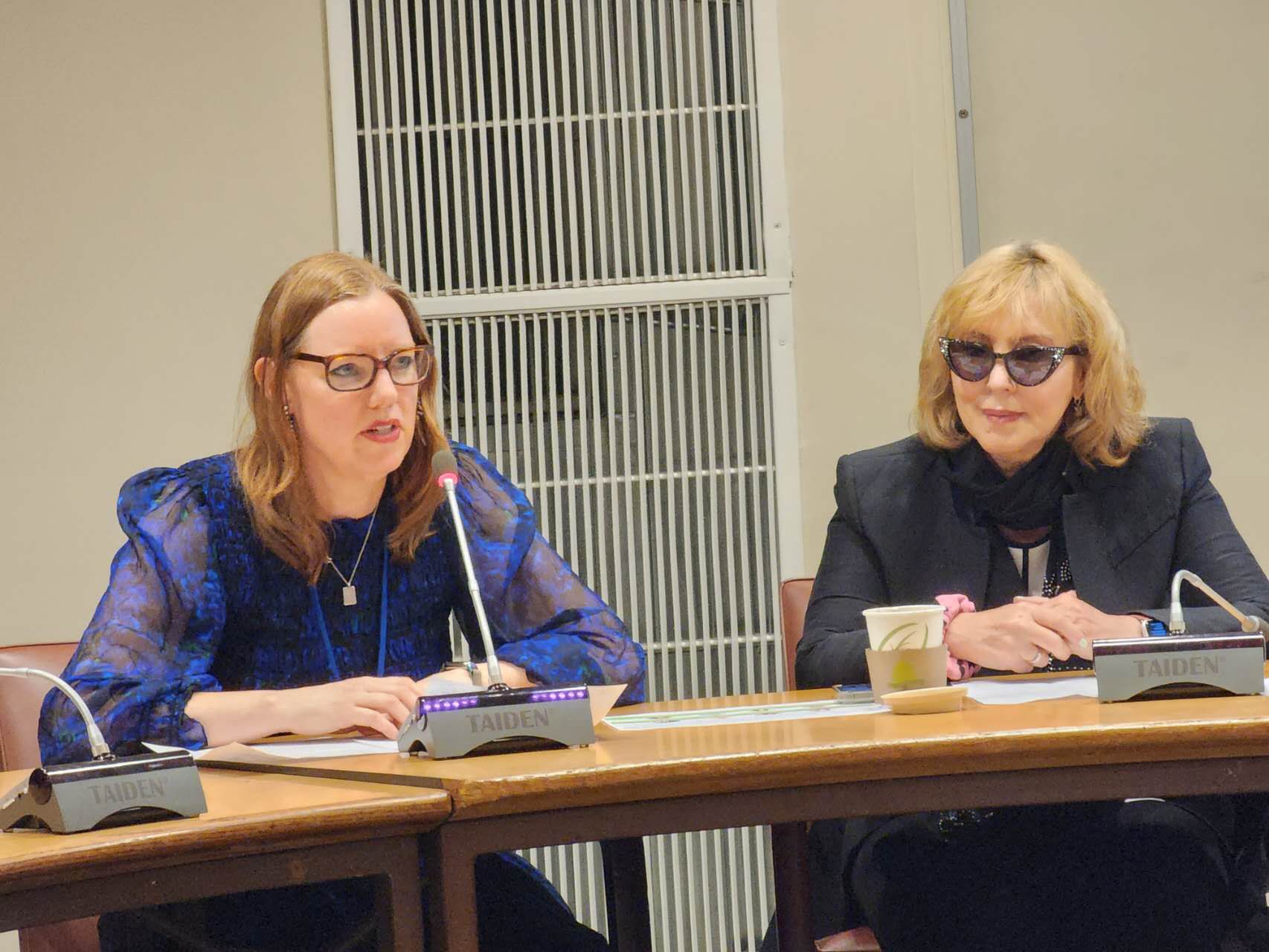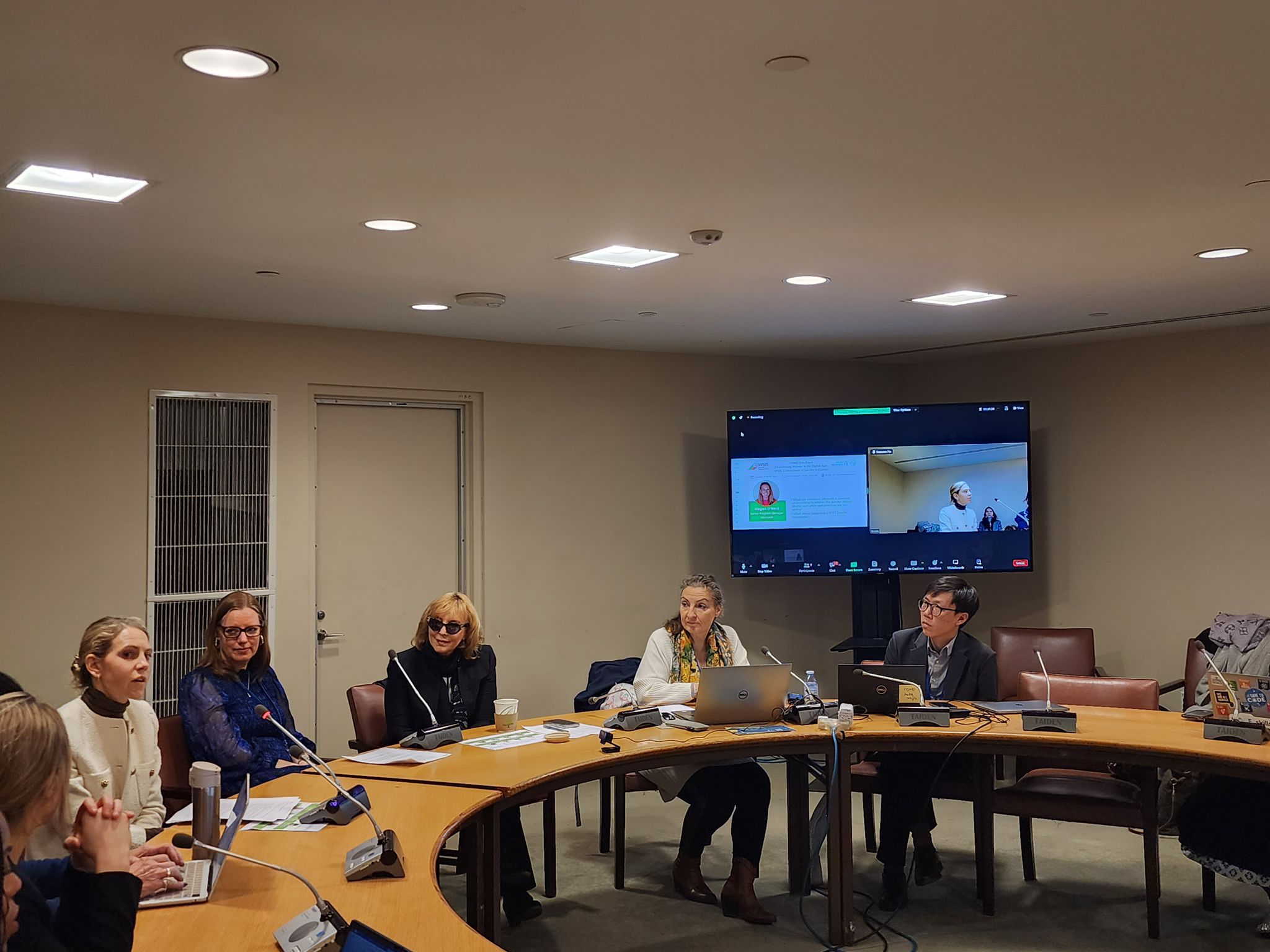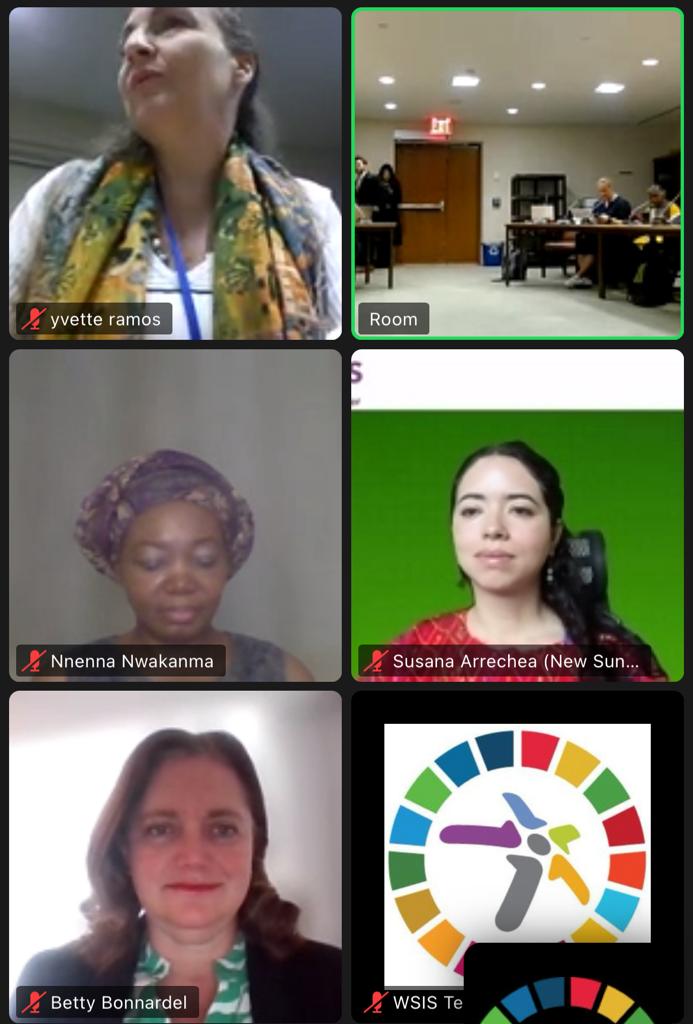CSW68 Side-Event: Empowering Women in the Digital Age: WSIS Commitment to Gender Inclusion
WSIS Gender Trendsetters, ITU
Session 122
Context and Introduction
The World Summit on the Information Society (WSIS) Process affirms the importance of promoting and maintaining gender equality and women empowerment, guaranteeing the inclusion of women in the emerging global Information and Communication Technologies (ICTs) society, and emphasizes the need to fully integrate gender equality perspectives in WSIS related strategies and facilitate their implementation to ensure that the Information Society enables women’s empowerment and full participation based on equality in all spheres of society and in all decision-making processes.
Digital tools are pivotal in advancing gender equality and women's empowerment. They are fundamental to the establishment of societies where both women and men can contribute and participate meaningfully. In its dedication to the issues of narrowing the gender digital divide, upholding gender equality, and achieving balanced gender participation at the WSIS Forum, WSIS persistently champions a special track on ICTs and Gender Mainstreaming.
Through this focused track, WSIS launched initiatives such as the WSIS Stocktaking Repository of Women in Technology, which aims to connect women across all sectors of the ICT industry. Additionally, WSIS Gender Trendsetters actively advocate for and promote the inclusion of gender considerations in ICT discourse. Gender mainstreaming remains a pervasive issue across all WSIS Action Lines. From strategy development and planning to actual implementation, this approach ensures that the Action Lines address ongoing gender disparities, combat discrimination, and contribute to the eradication of violence and harassment.
In alignment with the theme of this year's International Women's Day and the Commission on the Status of Women's 68th session (CSW68), the dialogue will concentrate on how WSIS serves as a platform that aids in empowering all women and girls through digital.
The side event will shed light on WSIS Gender Trendsetter’s efforts in promoting gender equality and empowering women and girls in various fields, including Science, Technology, Engineering, and Mathematics (STEM), calling for strategic partnerships and bringing to light concrete case studies on how to break down barriers and biases that have historically limited women's and girls' opportunities in STEM.
The multistakeholder panel will present their work towards greater gender equality and diversity in these fields. It will advocate for women's representation that reflects the full spectrum of women and girls in all their diversity and abilities, encompassing various cultural, social, economic, and political contexts.
Programme
After recalling the (little) progress made over the past decade and highlighting the (still) long way to go towards achieving Equality[1] and setting-up the stage, best practices and aligned recommendations to develop strategies for Equality in the public and private arenas, at either small or large organizations, at the level of the civil society, including STEM universities and societies, local authorities (small to medium cities and cantons), etc. shall be presented.
Different strategies discussed shall all aim at achieving gender equality and empowering all women in all socio-economic sectors and thus accelerate Humanity’s progress, with different perspectives including the Human Rights legislation, the economic growth, the innovation and creativity that benefits businesses and society, Education at all stages, health and well-being, political participation that needs to result in more balanced, inclusive, and representative governance, and to reflect the aspirations of both women and men, poverty reduction and social Justice, as well as Peace and Security for all.
The achievement of gender equality is integral to global development goals, including the Sustainable Development Goals (SDGs) and further as we envisage the Agenda of the Future beyond 2030.
Speakers will present how they, through their organisations do break the glass ceiling- which no longer has its place in the 21st century-, by advocacy, capacity building, research and partnerships, Girls' Education in STEM, promotion of Women in Leadership and representation in STEM-related fields, addressing Gender-Based Violence with Engineering tools and techniques, championing Role Models, and engaging Men and Boys in the whole plan.
[1] In 2023 (Sources: UN women, EPWS, SheFigures, WorldBank)
- For the same position, while a man earns 1 euro, a woman earns 0.77 euros
- A woman works 25% of the time more, for the same result
- Access to property is more difficult for women: they are only 13% of landownersµ
- Women represented on average 4.4% of business leaders, 16.9% of board members
- Only 24% of national parliament members are women
- Only 28% of researchers worldwide are women
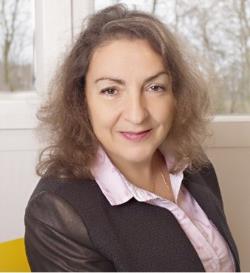
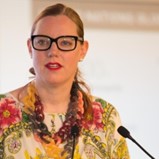
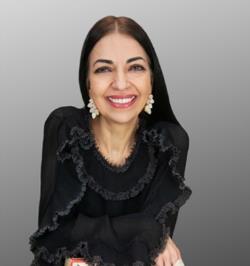



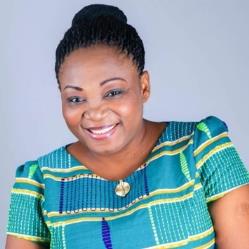
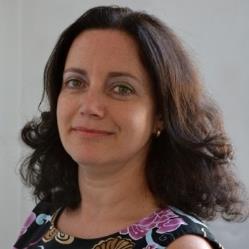
-
 C1. The role of governments and all stakeholders in the promotion of ICTs for development
C1. The role of governments and all stakeholders in the promotion of ICTs for development
-
 C2. Information and communication infrastructure
C2. Information and communication infrastructure
-
 C3. Access to information and knowledge
C3. Access to information and knowledge
-
 C4. Capacity building
C4. Capacity building
-
 C5. Building confidence and security in use of ICTs
C5. Building confidence and security in use of ICTs
-
 C6. Enabling environment
C6. Enabling environment
-
 C7. ICT applications: benefits in all aspects of life — E-government
C7. ICT applications: benefits in all aspects of life — E-government
-
 C7. ICT applications: benefits in all aspects of life — E-business
C7. ICT applications: benefits in all aspects of life — E-business
-
 C7. ICT applications: benefits in all aspects of life — E-learning
C7. ICT applications: benefits in all aspects of life — E-learning
-
 C7. ICT applications: benefits in all aspects of life — E-health
C7. ICT applications: benefits in all aspects of life — E-health
-
 C7. ICT applications: benefits in all aspects of life — E-employment
C7. ICT applications: benefits in all aspects of life — E-employment
-
 C7. ICT applications: benefits in all aspects of life — E-environment
C7. ICT applications: benefits in all aspects of life — E-environment
-
 C7. ICT applications: benefits in all aspects of life — E-agriculture
C7. ICT applications: benefits in all aspects of life — E-agriculture
-
 C7. ICT applications: benefits in all aspects of life — E-science
C7. ICT applications: benefits in all aspects of life — E-science
-
 C8. Cultural diversity and identity, linguistic diversity and local content
C8. Cultural diversity and identity, linguistic diversity and local content
-
 C9. Media
C9. Media
-
 C10. Ethical dimensions of the Information Society
C10. Ethical dimensions of the Information Society
-
 C11. International and regional cooperation
C11. International and regional cooperation
-
 Goal 5: Achieve gender equality and empower all women and girls
Goal 5: Achieve gender equality and empower all women and girls
-
 Goal 10: Reduce inequality within and among countries
Goal 10: Reduce inequality within and among countries
-
 Goal 16: Promote just, peaceful and inclusive societies
Goal 16: Promote just, peaceful and inclusive societies

